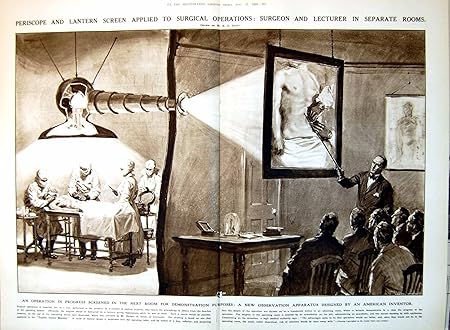 When you cut open, it's usually in one of two places: a dark alley, or a theatre; or, to be more precise, an operating theatre. The reason that it's called an operating theatre is quite simple, medical students used to sit in rows and watch. It was a spectator sport to such an extent that it was, until the 1820s just called a theatre without the need of the prefix operating.
When you cut open, it's usually in one of two places: a dark alley, or a theatre; or, to be more precise, an operating theatre. The reason that it's called an operating theatre is quite simple, medical students used to sit in rows and watch. It was a spectator sport to such an extent that it was, until the 1820s just called a theatre without the need of the prefix operating.In 1823, for example, The Lancet reported that:
At half-past Seven this Theatre was crowded in every part, by upwards of four hundred Students, of the most respectable description; in fact we never before witnessed so genteel a Surgical class.
Which is a pleasant thought for the diseased snob who doesn't want to be cut open by the working classes.
A theatre, of course, has two sides that face each other: the stage and the spectators. There can be no spectators behind the stage as, if there were, the actors wouldn't know in which direction to shout. However, if you don't have actors, but instead gladiators or delicious Christians, then you can have the spectators on both sides. This theatre-of-cruelty-in-the-round, where the the audience is 360 degrees instead of 180, is called an amphitheatre. Amphi just means around, or on both sides, and that is the reason that that something that lives (Greek bios) both on land and in water is called an amphibian. It's also the reason that one of those big old wine jars with a handle on both sides is called an amphora.
Phora there just means carry, and that is the reason that in Greece today a removals man, who carries your furniture from one place to another, is called a metaphor.
We tend to use the word metaphor a little more metaphorically.
The Inky Fool spying on his neighbours















